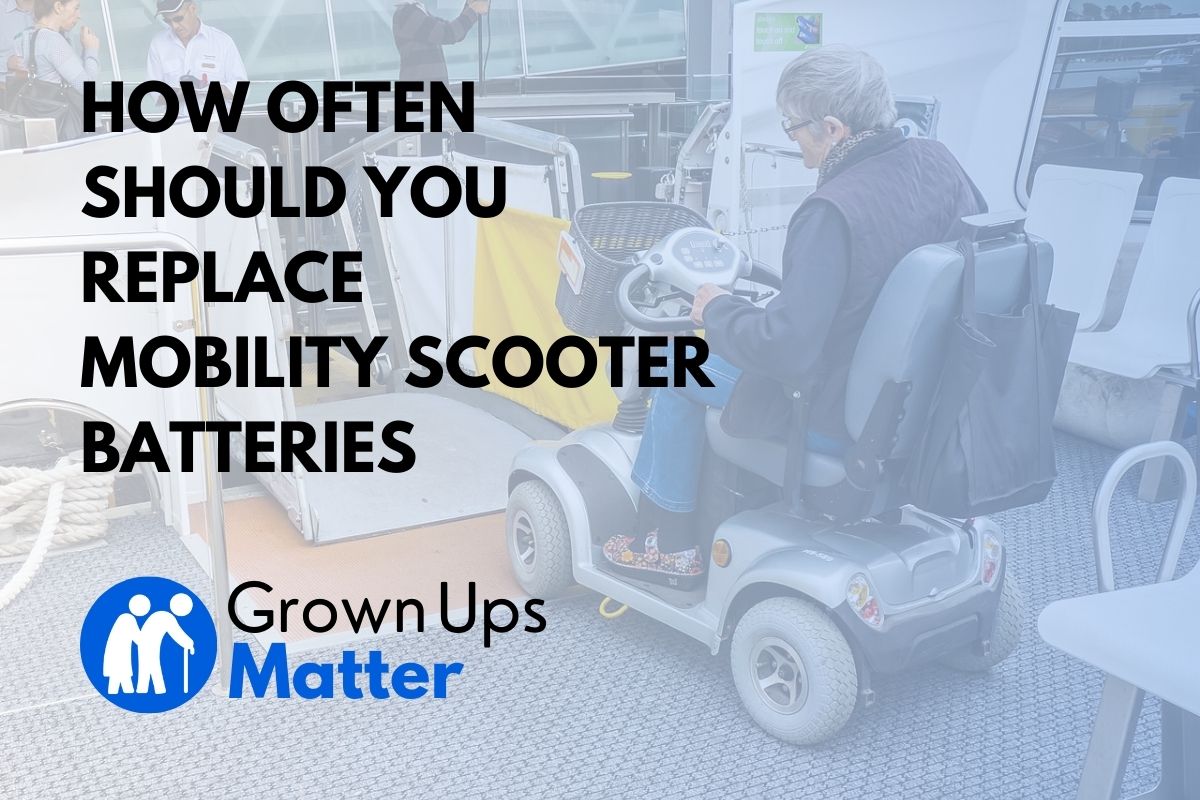If you’re someone who relies on a mobility scooter for daily use, then you already know the importance of having a reliable battery.
But how long can you expect your mobility scooter battery to last before needing a replacement?
In this article, we’re going to break down everything you need to know about mobility scooter batteries and their lifespan.
We’ll provide a simple framework to help you understand how batteries work, what factors can impact their longevity, and how to properly care for your battery to get the most out of its lifespan.
Whether you’re a new mobility scooter user or a seasoned veteran, this article will give you the information you need to keep your scooter running smoothly and ensure that you can continue to enjoy your independence for years to come.
Key Takeaways:
- Mobility scooter batteries usually last between 12 to 18 months with daily use. Occasional drivers can regularly get about 3 years of battery life. It all depends on usage.
- Regularly checking the batteries of your mobility scooter is essential, as it is very common to have to replace them regularly due to battery technology limitations.
- Almost anybody can change the batteries of a mobility scooter, but it is recommended that individuals with severe mobility limitations or reduced strength and dexterity in their arms and fingers ask for help. Most durable medical equipment retailers or mobility device shops can help with battery replacement.
How Long Do Mobility Scooter Batteries Last?
Mobility scooter batteries usually last for 12 to 18 months considering you use your scooter daily.
For more sporadic users the lifespan can be extended to 3 years or more.
This is because batteries lose capacity with every charging cycle.
Most manufacturers rate their batteries to last for at least 1000 charge cycles.
So, again, how soon you meet that deadline will depend on how much you use your vehicle.
It’s important that you check on your vehicle’s batteries regularly and take proper care of them to extend their durability as much as possible since a battery replacement can cost you up to $200.
Is it Common to Have to Replace Your Scooter Batteries?
Unfortunately, with the current state of battery technology, it is very common to have to change the batteries on your mobility scooter regularly.
Luckily, the process is quite straightforward, and almost any retailer or scooter repair shop will be able to perform this work for you in just some minutes.
So, if you are noticing performance issues with your mobility aid, it’s recommended you ask a professional if it could be the battery reaching the end of its usable life.
Can You Change Your Scooter Batteries Yourself?
Absolutely!
Just about anybody can change the batteries of a mobility scooter.
The process is very simple and required no specialized tools.
However, if you have severe mobility limitations or reduced strength and dexterity in your arms and fingers, it’s recommended you ask for help since batteries can be quite heavy.
For a detailed guide on how to change your scooter’s batteries, please check out this article:
Where Can You Take Your Scooter To Have Its Batteries Replaced?
Most durable medical equipment retailers or mobility device shops will surely be able to help you with your scooter’s battery replacement.
If they don’t offer the service in-house, they will surely know a place where you can take your vehicle, since it’s a very common procedure for scooter owners.
For more information on alternatives for servicing and repairing your mobility aid, we have written the following post:
Is There Any Way of Extending Scooter Batteries’ Lifespan?
Taking proper care and maintaining your vehicle as manufacturers indicate is essential for ensuring you are making the most of your scooter, and its batteries.
To know more about how to care for your mobility scooter’s batteries, I recommend the next article:
All the claims made in this article are only for informational purposes, based on the writer’s experience and not clinical advice. You should always consult your physician or physical therapist if you have any doubts about how this applies to your specific case.

Rami is an economist with a passion for personal finance and a desire to help people make the most of their retirement years. He’s also the tech mind that made all of this possible, and a marketing enthusiast. In his articles, Ramiro offers real-life advice and resources for seniors looking to manage their finances and make the most of their retirement savings. He is dedicated to helping his readers live comfortably and securely during their golden years.

